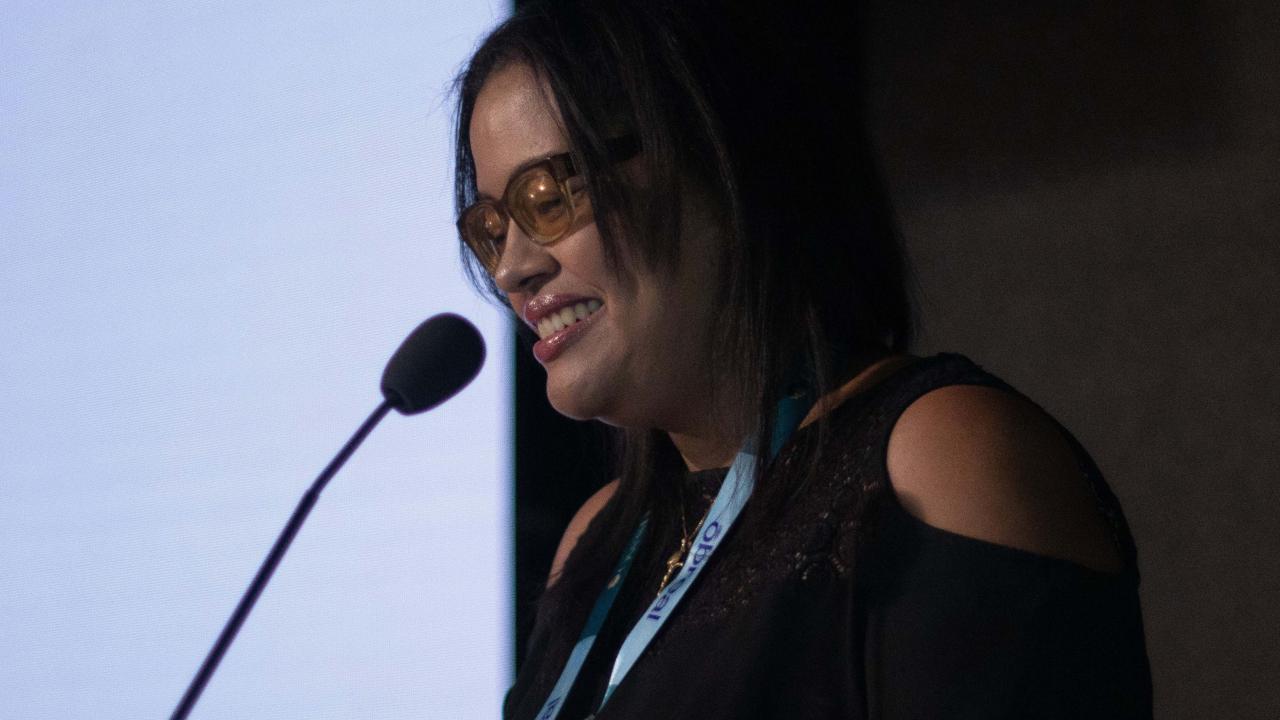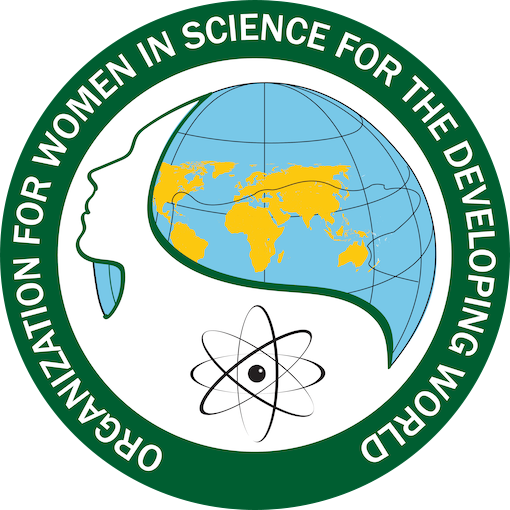Bogotá Statement
At the closing ceremony of OWSD 7th General Assembly, on 7th November 2025, the newly appointed OWSD President, Luisa Echeverria King, delivered the Bogotá Statement outlining the Organization's remarkable trajectory, the barriers still faced by women in science and a shared vision for the future.

Bogotá Statement
7th General Assembly of OWSD
7th. November 2025
PREAMBLE
As part of the 7th General Assembly of the Organization for Women in Science for the Developing World (OWSD), held from November 3–7 in Bogotá, Colombia, more than 180 women scientists from 50 countries across the Global South convened to articulate a shared vision for transforming global scientific systems. The Assembly took place at a defining moment—one in which the urgency to confront entrenched inequities, structural imbalances, and systemic exclusion has become undeniable. Women scientists continue to face uneven access to opportunities, disparities in institutional support, and historical barriers that constrain their full participation and leadership in science, technology, and innovation.
OWSD’s trajectory demonstrates remarkable progress: expanding visibility, a presence in 58 countries, and a growing role as a unique global platform representing underprivileged contexts and multidisciplinary expertise. Yet the organization also recognizes persistent gaps—fragmented communication, divergent chapter capacities, insufficient strategic advocacy, and limited integration into national decision-making ecosystems. These gaps weaken the global scientific landscape and restrict the transformative potential of women scientists whose leadership is essential for reimagining science in the 21st century. Moreover, some women scientists in OWSD operate from contexts of displacement, migration, or exile. Their continued commitment to advancing science in and from their home countries, even while living in diaspora, represents both extraordinary resilience and a structural reality that demands recognition and intentional support.
The Assembly affirms that increasing women’s representation in leadership and decision-making is not symbolic; it is strategic, necessary, and urgent. For too long, global scientific systems have been shaped through male-dominant structures. The participation of women in strategic roles is indispensable for redefining priorities, expanding perspectives, and catalyzing a scientific revolution rooted in justice, diversity, and shared responsibility. The voices, experiences, and leadership of women scientists—particularly those from the Global South—must inform national agendas, regional strategies, and global policy frameworks.
Consolidating OWSD’s global influence requires strengthening internal governance, promoting transparency and accountability, and ensuring equitable development across National Chapters. A cohesive, aligned, and strategically coordinated OWSD is essential to advancing scientific systems that are not only innovative but socially responsive and globally inclusive.
The Assembly emphasizes that scientific excellence must be grounded in humanity. Empathy, community engagement, and care—often undervalued—are in fact foundational drivers of relevance, innovation, and societal impact. These values are central to a scientific culture capable of addressing global challenges with purpose, responsibility, and commitment to the collective good.
For these reasons, we call upon women scientists worldwide to continue shaping scientific ecosystems where care is not perceived as a gendered responsibility but as an imperative for safeguarding humanity and ensuring a sustainable future.
ACTIONABLE STEPS
To advance this vision, the Bogotá Statement outlines three strategic areas of action that will guide OWSD’s collective efforts globally and regionally.
- Strategic Partnerships
OWSD will strengthen and diversify its alliances to amplify the influence and visibility of women scientists in science diplomacy and policy leadership at national and global arenas. This entails building mechanisms for interregional coordination and governance, and engaging more assertively with multilateral agencies, academic networks, philanthropic organizations, and private-sector actors. These partnerships will serve as engines for stronger advocacy, greater representation in high-level global dialogues, and increased opportunities for women scientists to shape the policies, agendas, and systems that govern science and technology. This also includes a stronger work and communication between National Chapters, Regions, Executive Committee and Secretariat.
- Resource Mobilization
OWSD commits to advancing coherent and sustainable strategies for mobilizing national and international resources across regions. This includes mapping funding opportunities, strengthening the capacity of National Chapters to secure and manage resources, and fostering multi-country collaborative proposals.
Diversification of funding—through innovative mechanisms and strengthened private-sector engagement—constitutes a strategic requirement for sustaining OWSD’s programs and equipping women scientists to drive initiatives that link local challenges with global scientific imperatives.
- Capacity Building for Scientific Leadership
OWSD will expand capacity-building initiatives designed to prepare women scientists for leadership roles in research, governance, and diplomacy. This includes training programs in key topics such as science policy, evidence-informed decision-making, science diplomacy, resource mobilization, strategic communication, and science entrepreneurship. Strengthening governance and leadership capacities within National Chapters, promoting mentorship networks, and supporting women’s ability to balance professional and personal responsibilities will remain central pillars of this effort. These initiatives establish a common framework for leadership development across the organization, while also setting the expectation that each region and National Chapter will adapt and implement capacity-building efforts in ways that respond to their specific needs and contexts. Through these actions, OWSD aims to nurture a new generation of science leaders equipped to influence institutional cultures and drive systemic transformation at national, regional and global levels.
The Bogotá Statement asserts that an inclusive global scientific community—one that values the leadership and perspectives of women—strengthens cooperation, deepens trust, and accelerates joint action to tackle the intricate and interconnected challenges of our world today.

